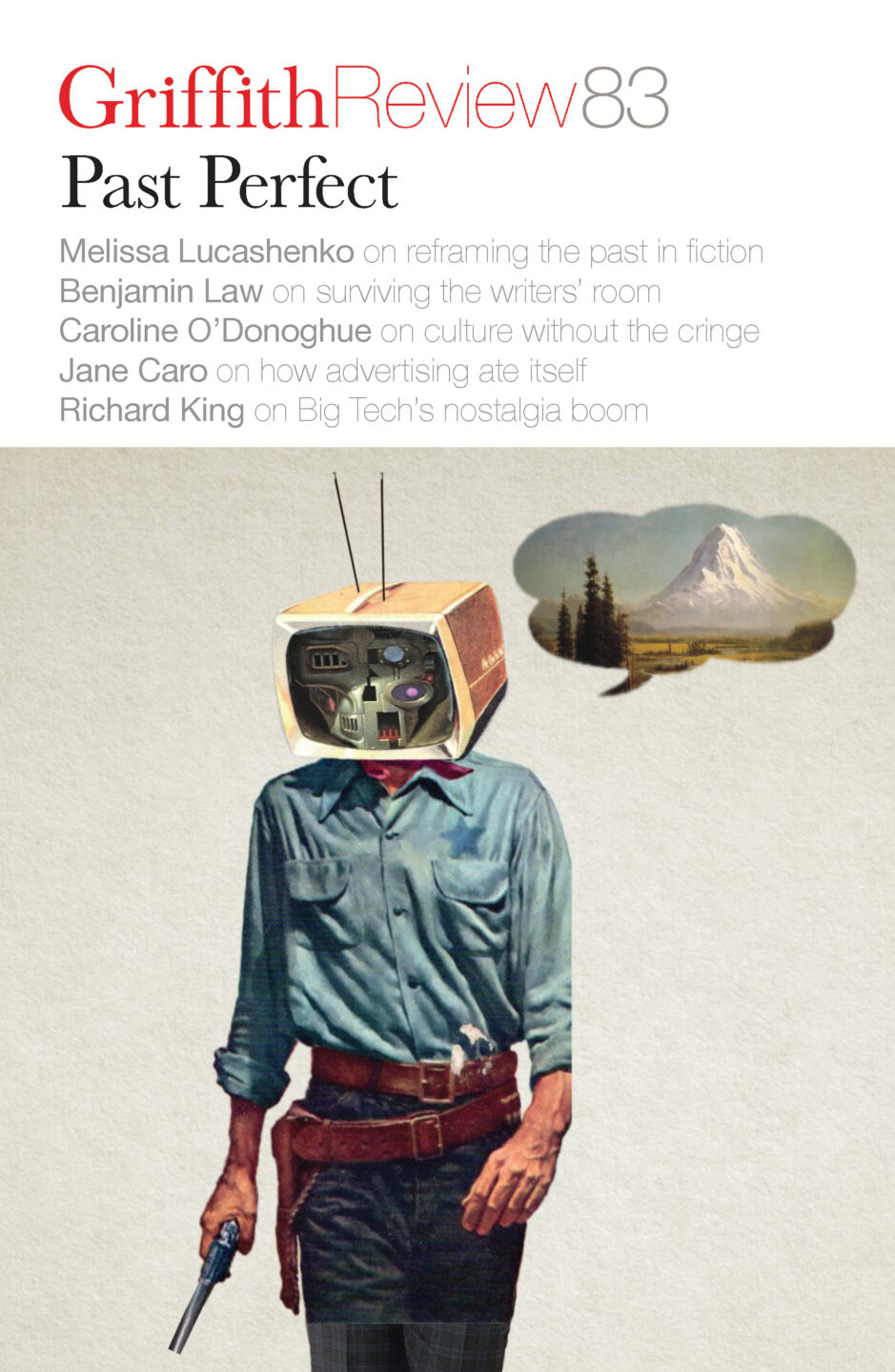Anticipating enchantment
The myth of editorial perfection and the legend of the solo author
Featured in

- Published 20240206
- ISBN: 978-1-922212-92-4
- Extent: 204pp
- Paperback, ePub, PDF, Kindle compatible


Already a subscriber? Sign in here
If you are an educator or student wishing to access content for study purposes please contact us at griffithreview@griffith.edu.au
Share article
About the author

Alice Grundy
Alice Grundy has been a book editor for the past fifteen years and is completing a PhD at ANU. Her thesis forms the basis for...
More from this edition

Farming futures
Non-fictionThe tempo of seasonal food production gives Mildura its seductive groove. The race is on to get food to market when prices are high and before it wilts and rots. But this race is only incidentally about food and mainly about finance. When markets fail or supply chains are disrupted, harvests are bitter. Watermelons, zucchinis and lettuces are ploughed back into the ground. Grapes are left hanging on vines, sitting in coolrooms and rotting in shipping containers grounded at ports.

The ship, the students, the chief and the children
Non-fictionThe power of the fossil-fuel order depends on foreclosing any kind of political and institutional decisions that would see societies break free from the malignant clamp of coal, oil and gas corporations. This power also depends on eliding alternative ways of seeing. In one sense, the whole of the political struggle against climate change can be understood as an effort to make corporate and political decision-makers see, such that they are required to act.

The kiss
FictionThe name, when it came, sounded as if it had been uttered by somebody else. The man’s look shifted from one of mild affection to puzzlement. ‘Excuse me?’ He was still smiling, but it was a different kind of grin – the type of smile people offer a stranger who begs them for spare change.